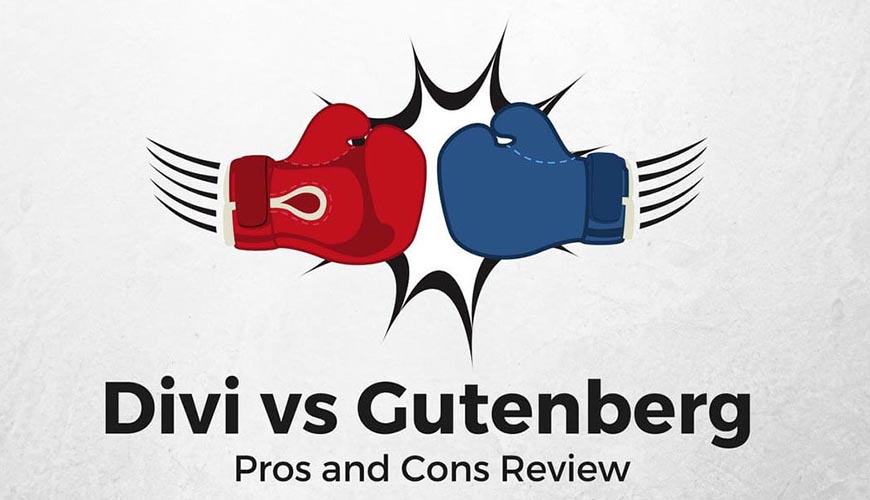WordPress is about to change forever. For better or worse, don’t let it catch you by surprise!
If you keep up with WordPress news at all, you’ve surely heard of Gutenberg already. It’s been the center of a whole lot of attention ever since the release of the beta version back in June of 2017. If you’re not keeping up with the goings-on of the community though, no one can blame you for not having heard much yet.
Gutenberg is the codename for the new post editor included in the WordPress 5.0 release. It changes everything related to the post editor experience. Everything!
If you haven’t heard of Gutenberg, or haven’t stopped to see the changes it makes yet, you need to NOW.
Saying that everything is changing with the post editing experience is no exaggeration. Literally, every aspect of the post editor will be changing. Not only does the entire user interface look and behave differently, many of the plugins and even theme you currently use may or may not be compatible at launch.
That’s why you need to start taking a look at this now- don’t let it catch you by surprise when it launches.
A word of assurance before we dive into the details- there’s no need to panic about your site struggling with the change. As long as you get ahead of things now, there are solutions for you even if you discover some of the plugins you love or your theme is not compatible. I’ll cover that below, and rest assured your website will be Gutenberg-ready if you get on this now.
What is Gutenberg?
As I mentioned above, Gutenberg is the codename for the completely new post editor interface within WordPress 5.0 in the very near future. Here’s a visual of what we’re dealing with.
Your WordPress post editor:

Your WordPress post editor on Gutenberg:

As you can see, there’s a massive User Interface difference. All the features you love are still there, but how you’re going to use them is completely different. There will be new features as well, but Gutenberg is still a work in progress so any attempt at a complete feature list would be shaky at best.
Gutenberg in a nutshell
- Gutenberg is meant to upgrade content generation in WordPress, keeping the CMS abreast and ahead of competitors like Wix, Weebly, Squarespace, etc.
- It accomplishes this through the introduction of movable Content Blocks into which text and media are entered, styled, and arranged on a page.
- Gutenberg represents a massive change, not just to users, but to plugin and theme developers as well. This means plugins and themes will have to adapt to remain compatible.
- These changes are coded within WordPress 5.0, with a projected launch in the 4thquarter of 2018.
- You need to be prepared. I’ll cover how you can do that below.
3 things you can do now to make sure you’re ready for the change
Getting out ahead of the change so that it doesn’t catch you unprepared should be your only real concern here. Hate the new editor? There’s a fix for that. Incompatible theme or plugins? There’s a fix for that. Just don’t get caught with your proverbial pants down.
ONE: Call or email Cray Media Group ASAP
Gutenberg is going to be the 1st epic shift on the internet in over a decade. You’re receiving this email because I’ve designed, built or edited your website in some fashion over the years. Don’t wait until the last minute to call me. This will not be a quick, immediate fix. If your site goes down due to compatibility issues, it will be down… for a while. I need time to ensure there won’t be any errors… or fix the havoc this update will have on your site and/or plugins.
TWO: Take Gutenberg for a test drive
Gutenberg is available as a plugin in the WordPress.org repository. It can be installed and activated just like any other plugin. It’s in an unfinished beta state, so there will be bugs. Use a development server with a test site. DO NOT INSTALL THIS PLUGIN ON A LIVE SITE!!!
THREE: Add your voice to the conversation
You don’t have to be a developer to contribute to Gutenberg. You don’t even have to know what React Javascript or PHP is. You just need to play with the plugin, get a feel for it, and then add your constructive feedback on how the WordPress team behind it can make it better.
You can find the code, report bugs, and make feature requests over on Github. Anyone can also join in on Editor Weekly Chats at WordPress.org. They have regularly scheduled meetings and you can participate by joining their Core Editor Slack channel.
Change can be scary. Not changing can be scarier.
It’s beta. There will be bugs.
As with most things in early beta, I consciously avoided immersing myself into the nitty gritty technical details of how the new post editor worked.
In that frame of mind, I decided to wait until the new software was closer to release and in a more finished state before I dove in for my first impressions of the new experience as a daily WordPress user and developer.
In that time between then and now, there has been a slew of controversy surrounding Gutenberg. A casual search around the web brings up content from some pretty major WordPress community contributors harkening the end of WordPress as we know it, even predicting a fork of the CMS into two separate pieces of software.
I installed the Gutenberg plugin expecting the worst. I was very pleasantly surprised.
From my experience so far, Gutenberg has been anything but the horror described in much of what I’ve read. In fact, it was plain fun to use. Different? Oh yes. Intimidating and a little scary as I learned its UI and rediscovered the comfortable familiarity of the post editor features I’ve all but lived in for years now? Most definitely.
My overall impression of Gutenberg from the perspective of someone who lives in the WordPress post editor every day? It’s different but very fun, and I can see the potential in these changes to take content creation in WordPress into the next generation.
Use the steps I’ve talked about in this article to prepare, and relax. It’s not the end of anything.
WordPress has to continue to evolve if it’s going to continue to grow, or even maintain, its place in the global CMS space. WordPress encompasses over one-quarter of the web, but that number is only going to shrink if we don’t continue to innovate and explore new ways to deliver the best website creation experience possible.
Change can be scary. Not changing can be scarier. Call or email me today to ensure that your website is Gutenberg ready, and then hang on for the ride.
The future is looking pretty cool.







